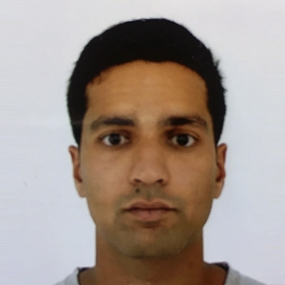Plan A... B... CT3....

Dr Mitul Patel is a CT3 Clinical Fellow at Guys & St Thomas’ NHS Foundation Trust.
Despite the uncertainty surrounding the “CT3 top-up year”, there is increasing clarity and reason for Anaesthetists in Training affected by the curriculum change, and their trainers, to be reassured.
As I supported my colleagues in intensive care towards the end of my core anaesthetic training in Spring 2020, I began organising a seemingly mystical "CT3 top-up year" (CT3), as it became evident that my Plan A of taking a sabbatical year abroad was doomed to fail. Here I share my experiences of this process.
Trainees who have completed a Core Anaesthetic or Acute Care Common Stem programme under the 2010 curriculum, and have not commenced higher specialty training by February 2022, will be required to self-manage an additional CT3 to align their competencies with the 2021 curriculum. This will primarily impact the 1289 trainees who were recruited into a core training programme between February 2018 and August 2019.
Anaesthetists in Training pursuing a CT3 should firstly find a post that facilitates the additional requirements, most likely in a department where core training was completed. The requirements are available here. Rarely, this may not be possible due to personal or departmental circumstances. Anecdotal evidence from frustrated colleagues suggests deaneries were slow to organise these posts for August 2021; early discussions with your College Tutor & Clinical Director are key in obtaining a post in your existing workplace if that is preferred.
A quick search on NHS Jobs shows that departments are acknowledging this issue nationwide, and posts meeting the CT3 requirements are specifically advertised. Moving trusts (or regions) does not preclude obtaining the competencies, which the college have stated can be gained in non-training posts. I ultimately moved regions for personal reasons, but was reassured about my ongoing progress after discussions with my supervisor & College Tutor in my new workplace. Although tiresome, video-conferencing did allow meetings to be organised rapidly.
The second priority is passing the Primary FRCA if not yet complete. It is important to determine whether trust-grade posts have allocated study leave and budget allowances prior to agreement, particularly if specific educational needs persist. In addition, many trust-grade posts are still paid on the 2002 junior doctor contract; this should be clarified before starting and the financial implications considered.
Lastly, demonstrating progress throughout the year requires maintaining a logbook and sending out assessments, just as if you were still in a training programme. The College stresses that evidence logged at any point in core training may be used as evidence for CT3. One of the strengths of the Lifelong Learning Platform (LLP) is the relative ease in which all historical evidence can be reviewed.
Patience is needed from trainees & trainers alike in managing the CT3. Although there is considerable uncertainty facing trainees during this period, supervisors are equally in this position for the first time, and a significant amount of goodwill is assumed. The changes to LLP including the equivalence certificate simplifies the process slightly, and the updated guidance from the College is useful for trainees and trainers alike to read.
My advice to trainees is to firstly stay calm. Despite the ongoing frustrations of recruitment, the CT3 requirements have become clearer. Most jobs will allow you to meet the required competencies. Staying organised & communicating your training needs is key, particularly if moving to a new workplace.
Secondly, stay in touch with your old supervisors if appropriate. For some this may be the first period of self-directed clinical progress, and few of your peers will be in a similar position. I also asked senior trainees to act as formal or informal mentors and found it to be another useful way of troubleshooting frustrations, welfare or training issues as the year progressed.
Lastly, if planning for ST4 recruitment there is ample time to build your CV and gain points for future applications. And of course, with ST4 recruitment not starting until August 2023, make plans for the 2022-23 year… Going abroad perhaps?!
Dr Mitul Patel
Written in collaboration with Dr Elsbeth Dyson, Consultant Anaesthetist, Queen Alexandra Hospital Portsmouth
